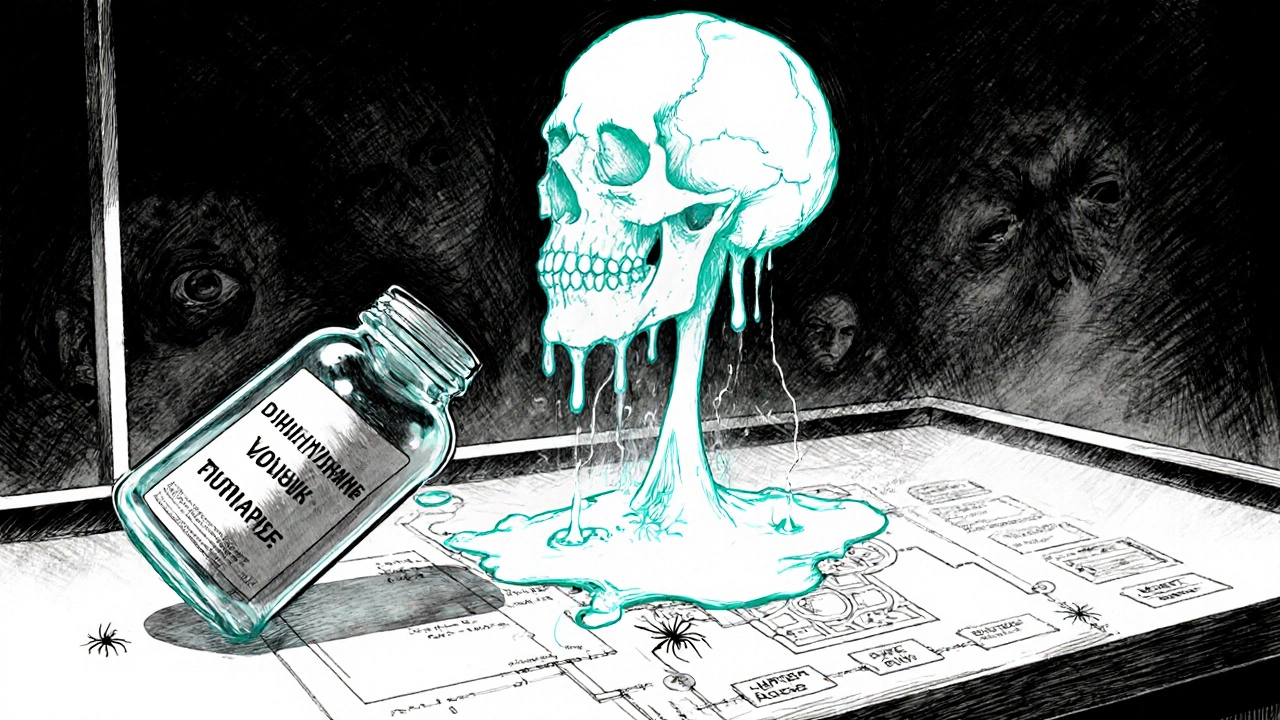Diphenhydramine: What It Is, How It Works, and What Else You Should Know
When you reach for a sleep aid or grab an allergy pill off the shelf, you might be holding diphenhydramine, a first-generation antihistamine that blocks histamine to reduce allergic reactions and also affects brain chemicals to cause drowsiness. Also known as Benadryl, it’s one of the most widely used over-the-counter drugs in the world — but most people don’t know how deeply it affects their body beyond just making them sleepy.
Diphenhydramine doesn’t just help with sneezing and itchy eyes. It’s also used for motion sickness, mild Parkinson’s symptoms, and even as a short-term sleep solution. But here’s the catch: it doesn’t just make you drowsy — it can leave you groggy the next day, mess with your memory, and even raise your risk of falls if you’re over 65. That’s why so many posts here compare it to newer antihistamines like cetirizine or loratadine, which don’t cross the blood-brain barrier as easily. You’ll find guides on how Periactin (cyproheptadine) stacks up against diphenhydramine, and why some people switch to Zyrtec for daily allergy relief without the foggy brain effect.
It’s also one of the few OTC drugs that doubles as a sleep aid, which is why you’ll see it in nighttime cold medicines and sleep gels. But using it long-term for sleep? That’s a problem. Studies show it can reduce deep sleep quality over time and may even be linked to higher dementia risk in older adults. That’s why many of the articles here focus on alternatives — whether it’s melatonin, magnesium, or behavioral fixes — to help you sleep better without relying on diphenhydramine. And if you’re using it for motion sickness on a road trip, you’re not alone. But you might not know that it’s less effective than meclizine for some people, and it can cause dry mouth and blurred vision that make driving even riskier.
What you’ll find in this collection isn’t just a list of uses. It’s a real look at what diphenhydramine can and can’t do, how it compares to other drugs you might be taking, and when it’s smarter to skip it entirely. You’ll see how it fits into broader conversations about antihistamine alternatives, sleep medicine risks, and even how aging changes the way your body handles these old-school pills. Whether you’re using it once a year for allergies or every night to fall asleep, there’s something here that’ll help you make a better choice.

First-Generation Antihistamines: Drowsiness, Anticholinergic Risks & Safe Use
A clear guide on first‑generation antihistamines, covering why they cause severe drowsiness, anticholinergic side effects, safety risks, and practical tips for safer use.




